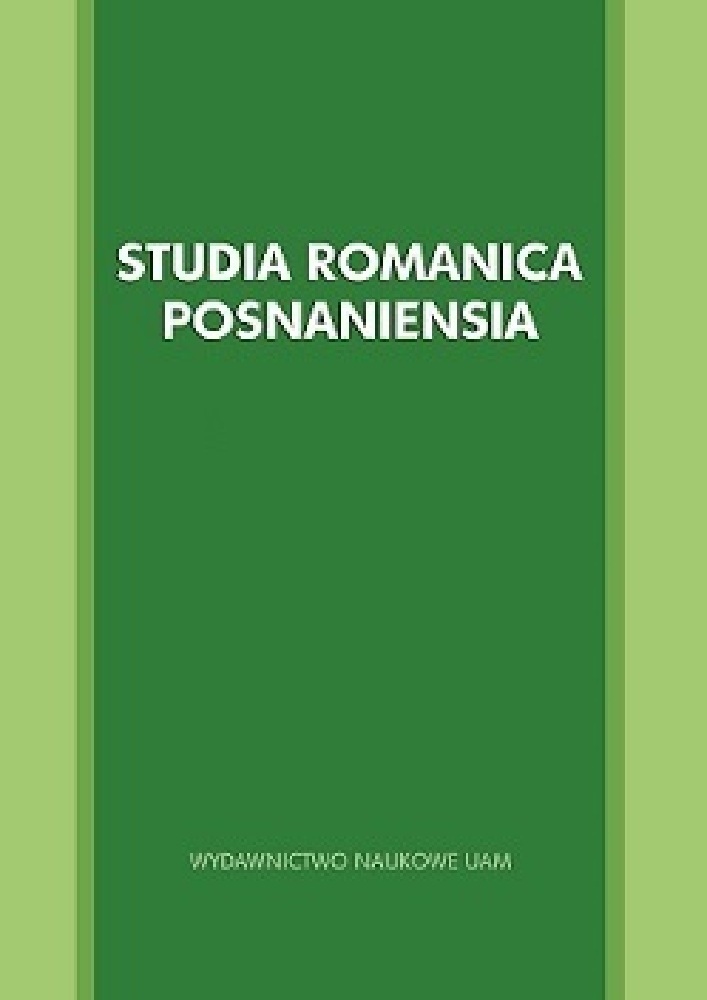Abstract
In the context of complete meaningful linguistic activities such as writing summaries, the paraphrase prompts reflection on the interaction between words, meaning and discourse, and thus helps develop the lexical component of discourse competence. Paraphrasing exercises are useful for both native and foreign language practice, especially for future translators, and lend students greater awareness of the shades of meaning distinguishing synonymic expressions in given contexts. We show that variations in meaning due to the use of synonyms and morpho-syntactical reformulations may be analyzed in terms of point of view and focalization, thereby taking into account the subjective and intersubjective dimensions of lexicon and discourse.References
Bakhtine, M. (Volochinov, V. N.) (2006). Le marxisme et la philosophie du langage. Essai d’application de la méthode sociologique en linguistique. Paris : Les Éditions de Minuit (traduction par M. Yaguello, oeuvre originale parue en 1929).
Bréal, M. (1897). Essai de sémantique : science des significations. Paris : Hachette.
Fuchs, C. (1994). Paraphrase et énonciation. Paris : Ophrys.
Galisson, R. (1970). L’apprentissage systématique du vocabulaire. Paris : Hachette/Larousse.
Gardiner, A. H. (1989). Langage et acte de langage. Aux sources de la pragmatique. Lille : Presses Universitaires de Lille (traduction par C. Douay, oeuvre originale : The Theory of Speech and Language, Oxford: Clarendon Press, 1932).
Kerbrat-Orecchioni, C. (2009). L’énonciation, de la subjectivité dans le langage. Paris : Armand Colin (quatrième édition).
Krieg-Planque, A. (2012). Analyser les discours institutionnels. Paris : Armand Colin.
Le Ny, J.-F. (2005). Comment l’esprit produit du sens. Notions et résultats des sciences cognitives. Paris : Odile Jacob.
Longhi, J. (2008). Sens communs et dynamiques sémantiques : l’objet discursif INTERMITTENT. Langages, 170, 109-124.
Nølke, H. (2006). La focalisation : une approche énonciative. In H. Włodarczyk (réd.), La focalisation dans les langues (pp. 59‐80). Paris : L’Harmattan.
Rastier, F. (1987). Sémantique interprétative. Paris : PUF.
Tomasello, M. (2014). A Natural History of Human Thinking. Cambridge, Massachusetts, London, England : Harvard University Press.
License
- The Author hereby warrants that he/she is the owner of all the copyright and other intellectual property rights in the Work and that, within the scope of the present Agreement, the paper does not infringe the legal rights of another person.The owner of the copyright work also warrants that he/she is the sole and original creator thereof and that is not bound by any legal constraints in regard to the use or sale of the work.
- The Author grants the Purchaser non-exclusive and free of charge license to unlimited use worldwide over an unspecified period of time in the following areas of exploitation:
2.1. production of multiple copies of the Work produced according to the specific application of a given technology, including printing, reproduction of graphics through mechanical or electrical means (reprography) and digital technology;
2.2. marketing authorisation, loan or lease of the original or copies thereof;
2.3. public performance, public performance in the broadcast, video screening, media enhancements as well as broadcasting and rebroadcasting, made available to the public in such a way that members of the public may access the Work from a place and at a time individually chosen by them;
2.4. inclusion of the Work into a collective work (i.e. with a number of contributions);
2.5. inclusion of the Work in the electronic version to be offered on an electronic platform, or any other conceivable introduction of the Work in its electronic version to the Internet;
2.6. dissemination of electronic versions of the Work in its electronic version online, in a collective work or independently;
2.7. making the Work in the electronic version available to the public in such a way that members of the public may access the Work from a place and at a time individually chosen by them, in particular by making it accessible via the Internet, Intranet, Extranet;
2.8. making the Work available according to appropriate license pattern Attribution-NonCommercial-ShareAlike 4.0 International (CC BY-NC-SA 4.0) as well as another language version of this license or any later version published by Creative Commons. - The Author grants the Adam Mickiewicz University in Poznan permission to:
3.1. reproduce a single copy (print or download) and royalty-free use and disposal of rights to compilations of the Work and these compilations.
3.2. send metadata files related to the Work, including to commercial and non-commercial journal-indexing databases. - The Author declares that, on the basis of the license granted in the present Agreement, the Purchaser is entitled and obliged to allow third parties to obtain further licenses (sublicenses) to the Work and to other materials, including derivatives thereof or compilations made based on or including the Work, whereas the provisions of such sub-licenses will be the same as with the attributed license pattern Attribution-NonCommercial-ShareAlike 4.0 International (CC BY-NC-SA 4.0)or another language version of this license, or any later version of this license published by Creative Commons. Thereby, the Author entitles all interested parties to use the work, for non-commercial purposes only, under the following conditions:
4.1. acknowledgment of authorship, i.e. observing the obligation to provide, along with the distributed work, information about the author, title, source (link to the original Work, DOI) and of the license itself.
4.2. the derivatives of the Work are subject to the same conditions, i.e. they may be published only based on a licence which would be identical to the one granting access to the original Work. - The University of Adam Mickiewicz in Poznań is obliged to
5.1. make the Work available to the public in such a way that members of the public may access the Work from a place and at a time individually chosen by them, without any technological constraints;
5.2. appropriately inform members of the public to whom the Work is to be made available about sublicenses in such a way as to ensure that all parties are properly informed (appropriate informing messages).
Other provisions
- The University of Adam Mickiewicz in Poznań hereby preserves the copyright to the journal as a whole (layout/stylesheet, graphics, cover design, logo etc.)
